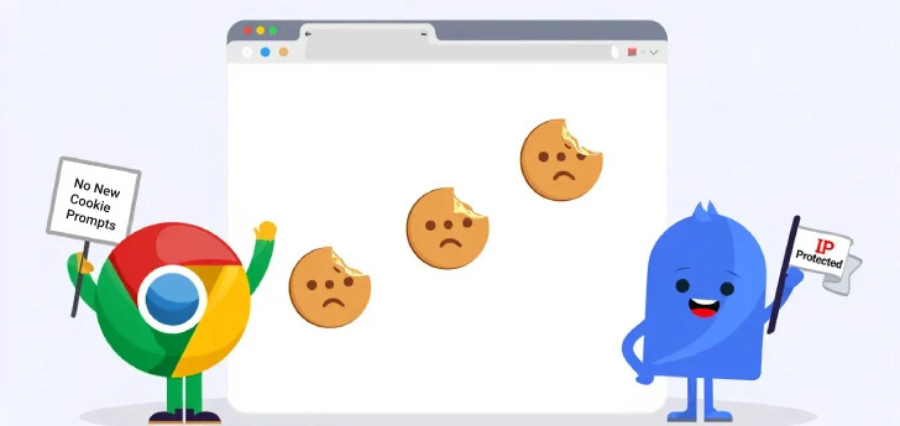Prime Highlights
- Google drops plans to introduce an additional third-party cookie prompt in Chrome.
- IP Protection in Incognito will enhance privacy by concealing users’ IPs.
Key Facts
- Cookie control continues to be handled by end users through Chrome settings.
- Incognito mode already prevents third-party cookies by default.
- IP Protection will launch in Q3 2025 as an open-source privacy feature.
Key Background
Google has opted to suspend its proposal to introduce a standalone prompt for third-party cookies in its Chrome browser. This move is part of its overall privacy plan under the Privacy Sandbox initiative, which seeks to minimize online tracking while continuing to support the advertising ecosystem.
Rather than adding a new prompt for third-party cookies, Google will keep its present model—permitting users to control cookie preference via current privacy settings in Chrome. The organization indicated that they made this move after gathering intense feedback from all stakeholders in the industry, comprising developers, publishers, regulators, and advertisers. Their feedback showcased a broad spread of views about how cookie deprecation would influence businesses, user experience, as well as web functionality.
Google Chrome browser already prevents third-party cookies in Incognito mode. On top of that, the technology giant is going to unveil a new IP Protection feature that will be reserved only for Incognito users. This feature, to be rolled out in the third quarter of 2025, will make it difficult for advertisers and trackers to identify users via cross-site tracking methods by covering users’ original IP addresses in third-party situations.
The move is also regarded as Google’s continued reaction to growing international pressure on its respect for user privacy, as well as its monopolistic status in advertising on the internet. Google has also come under legal pressure, with antitrust actions currently underway in the United States, where regulators have proposed dismantling some of its businesses—like the Chrome browser and ad businesses—in order to bring back competitive balance to the marketplace.
Other browsers such as Safari and Firefox have already blocked third-party cookies by default since 2020. Google’s situation is, however, more complicated because it plays both a browser provider and a significant advertising role. This has caused the company to move more slowly toward cookie deprecation in an attempt to balance privacy with the interests of websites that depend on advertising revenue.
The new IP Protection feature is also being built as an open-source initiative so that developers and the wider tech community can scrutinize and contribute to its design. This is meant to promote trust and transparency over Google’s privacy technologies.
Read Also : Kristina Cerniglia Unveils Strategic Vision for Growth and Stability at Briggs & Stratton




